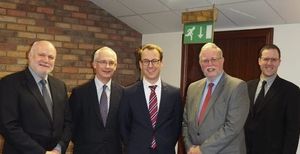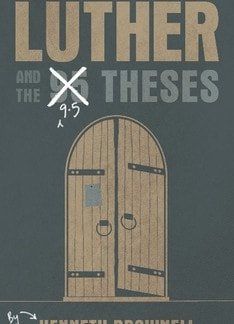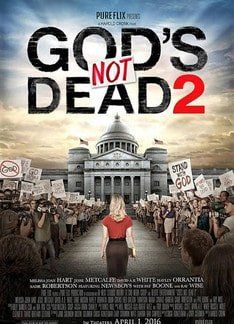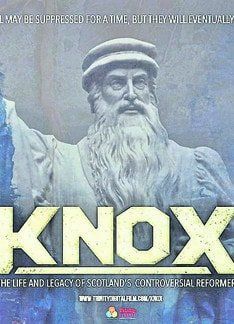THE GREAT EJECTION
Nonconformists and 1662
I grew up on a housing estate in South Wales. When I was five years old, there was hardly a building on the estate very much older than I was. One hundred yards round the corner from my door, however, was a magnificent and much older nonconformist chapel with its own graveyard.
The chapel was built in 1836, the work having begun in 1815. To my young eyes the chapel looked something like an alien spaceship landed in the middle of our modern world. That is where I first heard about Jesus Christ and faith in him, and became a Christian, a Baptist and a nonconformist.
Since those days I must have worshipped in a hundred or more such chapels and, for the last 28 years or so, I have preached regularly in a nonconformist chapel in my role as pastor of a nonconformist church (rather less attractive and distinct, it was built in 1870).
Further, a large chunk of my reading and study has been in the nonconformist milieu. I have been immersed in nonconformity all my life, and my debt to the movement, under God, is incalculable. Such things are also, no doubt, true of many who read Evangelical Times.
Lloyd-Jones and Spurgeon
The writer Anthony Burgess once wrote: ‘It’s always good to remember where you come from and celebrate it. To remember where you come from is part of where you’re going’.
The beginnings of nonconformity are something that nonconformists or dissenters today ought to be familiar with. Surely it is right for us to remember the Great Ejection of 1662, which marks the beginning of nonconformity? Iain Murray has called it a ‘spiritual watershed which divides two eras of our religious history’.
Back in 1962, Dr D. Martyn Lloyd-Jones, giving the annual lecture of the Evangelical Library in London, argued for doing so on the basis that practically all that is good in evangelicalism finds its roots in the Puritanism that was so fiercely persecuted in the Ejection and oppression that followed.
He also added that ‘the very greatness of the men themselves as men of God demands our attention’. This echoes the view of C. H. Spurgeon who, preaching on Samson in 1858, said, ‘those great preachers whose names we remember, were men who counted nothing their own.
‘They were driven out from their benefices, because they could not conform to the Established Church, and they gave up all they had willingly to the Lord. They were hunted from place to place … they wandered here and there to preach the gospel to a few poor sheep, being fully given up to their Lord.
‘Those were foul times; but they promised they would walk the road fair or foul, and they did walk it knee-deep in mud; and they would have walked it if it had been knee-deep in blood too’.
Those who were ejected in 1662 suffered as they did as a result of their loyalty to conscience. In this they are a tremendous example to all believers, nonconformist or not. However, nonconformists today should especially be aware of their example.
Christian churches existed outside the national church in England before 1662, but it was only when large numbers of Puritans from within the established church ‘threw in their lot with the despised sectaries’ that nonconformity or dissent, as it was to become, became a force to be reckoned with.
J. C. Ryle
As for those who today are outside nonconformity, it would be good for them to ponder the assessment made in the nineteenth century by Bishop J. C. Ryle.
He wrote of the Great Ejection, from an Anglican point of view, as miserable, disgraceful and suicidal. ‘A more impolitic and disgraceful deed never disfigured the annals of a Protestant church’, he wrote. It did ‘an injury to the cause of true religion in England, which will probably never be repaired’.
He felt, therefore, that we should all ‘know something about the subject, because it serves to throw immense light on the history of our unhappy religious divisions in this country’.
The basic facts are that in 1662 the Act of Uniformity was passed. The main event occurred on St Bartholomew’s Day, 24 August 1662, when about 2000 ministers and others in the pay of the national church in England and Wales were silenced or ejected from their livings, for failing to conform to and dissenting from what the Church of England required.
What was required, among other things, was that they use the newly published Prayer Book. The 1662 Prayer Book has many admirable qualities, but there is much to object to and this renewed policy of vigorously enforcing its use was too much for many. This was especially the case as they had ceased using it over the decade of interregnum after the death of Charles I.
The Prayer Book was not the only concern (nonconformists objected, for example, to the requirement for re-ordination of ministers by a bishop where that had not happened before), but it proved to be the catalyst for their objections and fears.
Conscience
The Bible speaks about the conscience often enough, but it is a rather neglected subject among evangelicals today. The 1662 men were those who knew that they had a conscience and were willing to act upon it with courage when necessary.
The story is told of how someone once said to Oliver Heywood, ‘Ah, Mr Heywood, we should gladly have you preach still in our church’.
He replied: ‘Yes, I would as gladly preach as you can desire it, if I could do it with a safe conscience’.
The man honestly replied: ‘Oh, sir, many nowadays make a great gash in their consciences. Cannot you make a little nick in yours?’ Heywood clearly could not. Oh for men and women like him today!
Tradition
Further, what decides us, as far as truth is concerned? Do we say that if we were born into a certain church, Anglican or Baptist, say, that we simply remain within it ‘come hell or high water’?
Are we free to follow a certain tradition, simply because it is to us an attractive one or gives certain advantages? Or is it truth that really matters? In Dr Lloyd-Jones’ words: ‘Am I to be influenced primarily by the fact that I happen to have been brought up in a certain denomination, or am I to be influenced primarily by the teaching of the Word of God?’
Integrity
What about mental reservations or giving my own private interpretation to articles or confessions of faith that I am required to subscribe to?
‘Whatever may be said against them’, says Lloyd-Jones again, ‘the Puritans were honest men. They could not prevaricate; they could not indulge in mental reservations’. What about us?
‘In it to win it’
The Puritans tried for more than 100 years to work within the Church of England. In 1662 the majority of them felt compelled to say enough is enough, and so they were ejected.
To quote Lloyd-Jones yet again: ‘Their story compels all who hold their evangelical views to face this question. When do we come to the position of 1662? At what point do we feel that we are compromising the truth and violating conscience?’
The Anglican church of today is undoubtedly very different to what it was in 1662, though not all things have changed. Anyone who chooses to work within it ought to be aware of its history.
Gary Brady
The author’s book on the Great Ejection is to be published by EP Books in September


















